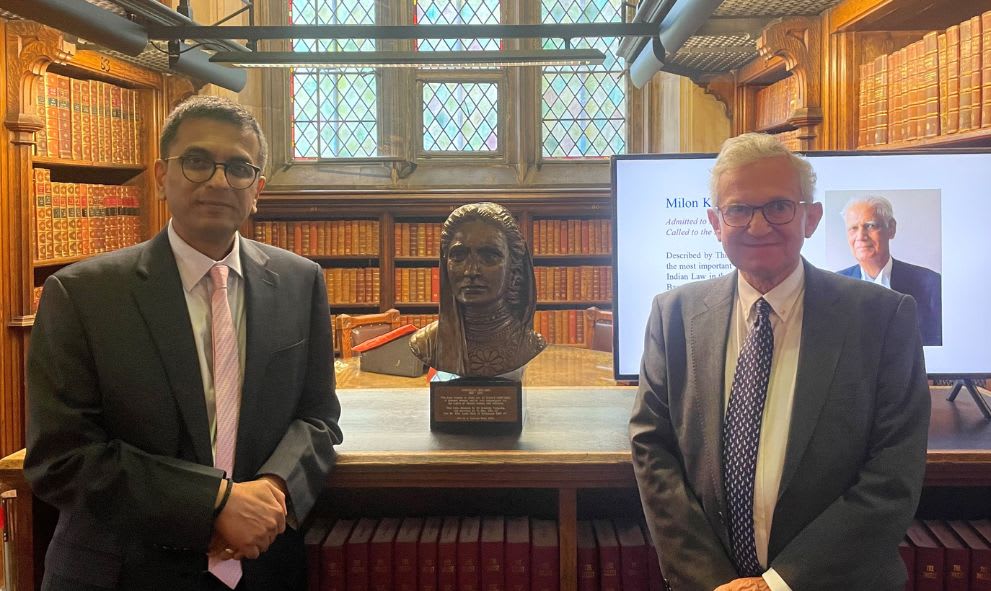The Honourable Chief Justice Dhananjaya Chandrachud becomes an Honorary Bencher of Lincoln’s Inn

The Honourable Chief Justice Dhananjaya Chandrachud, Chief Justice of India, has been published as an Honorary Bencher of Lincoln’s Inn. The Treasurer introduced him to Hall at lunchtime on Wednesday 3 October, before viewing the Library’s South Asian Heritage Month exhibition. He was accompanied by his colleague Mr Rakesh Kumar, Registrar, Judges’ Admin and International Relations, on the visit.

About The Hon Chief Justice Chandrachud
Dr Justice Chandrachud took oath as the Chief Justice of India on 9 November 2022. Before his appointment to the Supreme Court in May 2016, he was the Chief Justice of the Allahabad High Court (October 2013 – May 2016), and was a judge of the Bombay High Court for thirteen years.
Justice Chandrachud joined the Bombay Bar after obtaining LLM and SJD degrees from Harvard Law School. He was designated as a Senior Advocate in June 1998 and served as Additional Solicitor General of India. As an advocate he championed several causes, such as the right to privacy, the rights of HIV+ workers and religious and linguistic minority rights.
As a judge of the Supreme Court of India, Justice Chandrachud has delivered seminal judgements, particularly in the realm of civil rights, including on the decriminalisation of homosexuality and adultery, combating the caste system, and discrimination by gender and disability. His judgements have served to declare privacy as a fundamental right, mandated the grant of permanent commissions to women in the armed forces, and taken great strides in environmental law. Ever the trailblazer, Justice Chandrachud also serves as Chairperson of the pioneering e-committee of the Supreme Court of India, which aims to digitise the judiciary in India.
Justice Chandrachud has been a guest speaker at Harvard Law School, Yale Law School, Australian National University and University of Witwatersrand, South Africa. He has addressed several international conferences including the United Nations High Commission on Human Rights, United Nations Environmental Program, the World Bank, Asian Development Bank and the Association of Asian Constitutional Courts.
